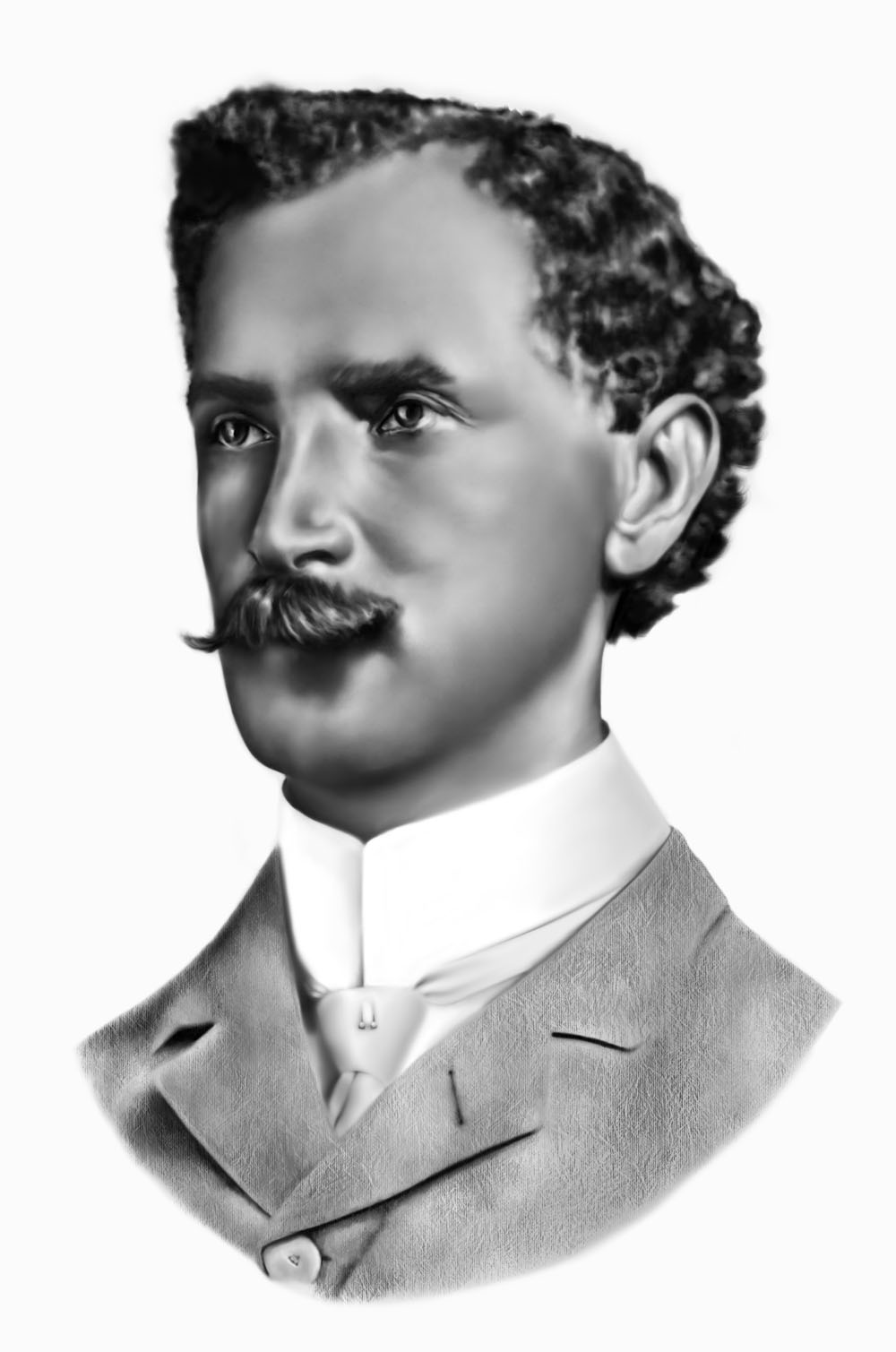
Noah Parden, along with his older law partner, Styles L. Hutchins, was involved in one of the pivotal legal cases in our history. This case, the Ed Johnson case, gave rise to our modern understanding of the authority of the federal constitution over state criminal matters, modern habeas jurisprudence, and the authority of the United States Supreme Court. Parden and Hutchins' heroic efforts in this case exemplify the noblest and very highest ideals and values of the legal profession.
Ed Johnson was a young black man accused of raping a young white woman in 1906 at the foot of Lookout Mountain in Chattanooga. Spurred on by sensational and inflammatory media coverage, the white population of Chattanooga became enraged and demanded quick punishment for the perpetrator. Based upon skimpy evidence Johnson was quickly charged. With threats of mob violence both inside and outside of the courtroom, he was found guilty after a short trial and sentenced to death. After his conviction his family approached Parden and Hutchins to take on post-conviction representation. Parden had rejected requests to take on the case before and after the conviction.
[Parden had] rejected requests by white lawyers and leaders within the black community to get involved in Johnson's defense during the trial., even after Johnson had been condemned to die, Parden initially turned away Johnson's father who pleaded for help in saving his son's life. But Hutchins insisted they accept the case. The older lawyer saw it as their duty and eventually browbeat his young associate into handling the appeal. Hutchins finally won over Parden with the argument "[m]uch has been given to us by God and man . . . Now much is expected."
Parden and Hutchins recognized that by taking on the case they would jeopardize their law practice, their livelihoods, their reputations in the community, their positions in the Chattanooga community, and their physical safety and well-being. "They debated the disastrous impact that the appeal would have on their law practice and their reputations. They discussed the very real possibility of the lynch mob coming after them." Knowing these risks, they took on the case and sought relief from the federal courts.
Parden traveled to Washington, D.C. where he presented their petition to Associate Justice of the United States Supreme Court John Marshall Harlan. The argument presented was that Johnson had received a fundamental unfair trial because although the formalities of a fair trial had been observed, in fact in substance he did not receive a fair trial. Pardon was one of the first, if not the first, black lawyers to argue before a justice of the Supreme Court as lead counsel. The Supreme Court accepted the petition and ordered a stay of Johnson's execution, placed Johnson in federal custody, and assigned the Sheriff the responsibility of safeguarding Johnson. The very next day the angry mob broke into the Hamilton County jail, took Johnson out, and lynched him on the Walnut Street bridge. Following this lynching the Supreme Court for the first and only time in its history held a trial and found the Hamilton County Sheriff and others guilty of contempt of court.
Parden was born in Rome, Ga. on July 18, 1865, just after the end of the Civil War. His childhood years were spent on a farm in rural Floyd County, Ga. where he performed farm labor. He attended a rural grade school. During his teen years he left Georgia for Chattanooga where he enrolled in high school at Howard High School. He found work as a waiter to support himself while attending Howard. After graduating from Howard High School, Parden entered Howard University in Washington, D.C. but was not able to afford the expenses to continue his studies. He returned to Chattanooga where he became a barber and practiced that trade for several years. In 1889 Parden entered Central Tennessee College Law School in Nashville where he graduated as class valedictorian in just two years. After law school and admission to the bar in 1892, Parden established a law practice in Chattanooga. He later became a partner of Styles Hutchins. Together they represented nearly two-thirds of black people requiring legal representation. Parden was a disciple of Booker T. Washington.
After the lynching Parden traveled to several other states speaking about the case to both black and white audiences. In Chattanooga their legal practice suffered greatly. Former clients avoided them. Finally, due to the threats to their safety they both left Chattanooga. Their homes and office were attacked. An unsuccessful effort was made to burn their office. Rocks had been thrown through the windows of their homes and shots had been fired into Parden's home while his wife was inside. They received messages from friends and relatives that they would most likely be killed by a mob if they did return. Parden moved to East St. Louis, Illinois and resumed practicing law. He was elected to the County Board of Supervisors in St Clair County, Illinois in 1907 and was later re-elected for a second term. In 1935 he was appointed Assistant Prosecuting Attorney of St. Louis, MO. He was the first African American to be so appointed. In 2003, the Illinois General Assembly passed a resolution honoring Noah Parden. He practiced law there until his death in 1944.